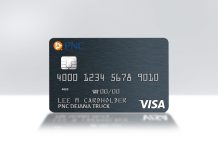
Growing your business takes time and money. You may have plenty of time, but what about money? Even if you don’t have a nest egg to help you pay for new office space, hiring employees, or ordering more inventory, you likely qualify for some kind of small business financing.
Depending on several factors, including your business and personal credit scores, your revenue, and how long you’ve been in business, you may qualify for different types of financing.
1. The SBA Loan
This is the gold standard when it comes to financing, primarily because of its low interest rates and diversity in what you can use the loan for. You can secure everything from a microloan of up to $50,000 all the way up to $5 million with various SBA loan programs.
To qualify for the most popular SBA loans, you generally need a FICO SBSS score of at least 140. (This FICO score ranges from 0-300, with 300 being the highest score you can get.) Lenders often require a score of 160 or higher. You’ll also need to be in business 2+ years and have solid financials.
Pros: These loans are designed for qualifying small businesses who can’t get similar credit elsewhere, so it may be easier to qualify than with traditional bank loans.
Cons: The application process can be longer than with other forms of financing, and you need solid and established credit to qualify.
2. Invoice Factoring
If you send clients invoices and struggle with cash flow while waiting for them to pay, you might benefit from invoice factoring. You sell your outstanding invoices to a factoring company that will, in turn, take over collecting that payment.
To qualify, you simply need healthy invoices, meaning your clients who owe you have solid credit, indicating the likelihood of them paying those invoices.
Pros: You can get access to cash quickly, which ensures your cash flow is steady.
Cons: This type of financing can be more expensive than a long-term loan.
3. Business Credit Cards
What happens if the equipment you rely on to run your business suddenly goes kaput? Do you have the cash on hand to buy a replacement? Business credit cards can be great in a pinch, when you need to cover an unexpected expense but don’t have the cash.
Credit card issuers will look at your personal credit scores and income from all sources (not just business revenues) to determine whether you qualify.
Pros: Many cards offer rewards that let you earn cash back or airline points, making them a more appealing form of financing.
Cons: Interest rates can make credit card charges expensive if you don’t pay your bill in full.
4. Tradelines
Not every form of financing requires the heavy paperwork of an SBA loan. If you regularly purchase supplies from a vendor, you may qualify for a vendor credit—essentially a line of credit you can use only with that vendor. This gives you the opportunity to pay your invoices over time and keep cash flowing.
Pros: In addition to freeing up cash flow, tradelines can help you establish your business credit, which can help you qualify for other financing later.
Cons: Starting out, you may have shorter terms like net-10 or net-30, but if you pay your bills on time, you may be able to extend those terms.
5. Crowdfunding
While this isn’t usually a loan per se, crowdfunding can be a financial vehicle to not only get you the cash you need for expansion but also bolster support for your business from customers and interested investors. Crowdfunding sites allow you to raise funds, sometimes in exchange for equity or a token of appreciation (like a company-branded hat, for example, or early access to your newest product).
Pros: Because you typically don’t have to pay back the funds you raise, you can put more money into growing your company.
Cons: It can be challenging to raise large dollar amounts, especially without a significant marketing push.
Which Financing Tool is Right for You?
With so many options, it can be challenging to know which direction to go in. Ask yourself: how much money do I need, and what do I plan to do with it? How’s my credit? Does it qualify me for better loan options, like an SBA loan?
Then consider: how quickly do you want to pay back the loan? Would you rather have cash tomorrow but pay a premium for it, or can you wait to get your funding secured in exchange for lower interest rates?
No matter what type of financing you decide on, have a plan for how you’ll use the money as well as how you’ll pay it off. Without a plan, a modest loan or charge on a credit card could snowball into being a much more expensive decision.
About the Author:

Gerri Detweiler
Gerri’s been guiding individuals through the confusing world of finance and credit for 20+ years. She is the author or coauthor of five books, including her most recent, Finance Your Own Business: Get on the Financing Fast Track. Today, Gerri serves as the Education Director for Nav, an online platform that matches small business owners to their best financing options and gives free access to personal and business credit scores.











